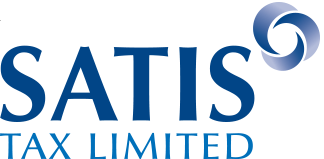Satis Wealth Management
I am pleased to report that I and my colleagues continue to work effectively, largely from home. The technology works very well 80% – 90% of the time. When it fails it is pretty frustrating but this is increasingly rare – well done IT. ( We have had some difficulties with our telephony software and have decided to replace it. If you have any difficulty telephoning us please use the mobile telephone numbers of the planners, thank you. )
We are conducting a great many meetings by Zoom, and a few by Skype, Teams and other means. We are getting better at these meetings and have realised that several a day of these can be quite hard work. On just a few occasions we have met clients in their gardens or at our offices in Watford and London. Our offices have been carefully rejigged to be sensibly safe with lots of sanitiser, Perspex partitions and so on. I have very much enjoyed the few face to face meetings I have had; they are better than any virtual meeting.
We will gently and in line with government guidance slowly have a few more colleagues working from our London office.
The investment world
Last week was great for headline writers. Apple became the first company to have a market capitalisation of $2 trillion – that is more than the market capitalisation of the UK FTSE 100. The UK National Debt went over £2 trillion for the first time and the previous month (June) was the first month since the 1960s that debt was greater than 100% of GDP. The S&P 500 reached a new all time (intra-day) high – the market has recovered to its pre Covid high in less than 6 months.
While there have been a slew of positive articles it is certainly not the case that markets have recovered and are back to normal. The most striking factor is how uneven the market recovery has been. The big tech stocks are going from strength to strength while others (airlines for example) are in deep trouble. I will not write about dividends in detail again, but do not forget that dividends have been very significantly reduced (445 London Stock Exchange quoted companies have cancelled, suspended or cut dividends in the last 6 months) and also that corporate earnings, in aggregate, have also declined by approximately 25% (the exact number depends on your data set).
Bond yields have fallen still lower so the cost of this debt is very low by historic standards.
For many observers (me included) the printing of money makes us nervous about future inflation. The least bad inflation predictor is to compare the returns on identically dated conventional gilts and index linked gilts or in the US compare Treasuries with TIPS. This method has not shown any significant uptick in UK inflation expectations but in the US the number has moved back to where it was pre Covid (about 1.3% per annum). Many clients are nervous about inflation.
I was interested to read Silvana Tenreyro’s piece on this topic. Ms Tenreyro is Professor of Economics at LSE, and studied for her Masters and PhD at Harvard. She is a member the Bank of England’s Monetary Policy Committee. Ms Tenreyro looks back at inflation during previous pandemics as far back as the Black Death. https://www.bankofengland.co.uk/-/media/boe/files/speech/2020/covid-19-and-the-economy-speech-silvana-tenreyro.pdf?la=en&hash=94DE5B4F39A84E537341F3D0C35DE5F651D45E7C
Her conclusion is that pandemics are generally deflationary. This clearly dampens inflationary expectations if you buy the theory. The paper is hardly cheery – her central case is for an “interrupted V” shaped recovery. There is also an interesting section on how comfortable the British public are going out to a cinema or restaurant.
The other recent new factor is a weakening US Dollar.
How does all this shape our advice? We seek to help clients arrange their affairs robustly. In practical terms that means a very widely diversified portfolio. A weakening dollar does not alter our views. Markets react in milliseconds to “new” news. There is no point, indeed it is a high risk approach, to try and second guess the market. If inflation takes off, we (you) have the exposure to Index Linked Gilts. If equities collapse we (you) have high quality bonds. Our faith is in capitalism and its ability to preserve and reinvent itself. If this all sounds reassuring there are as always counter arguments:-
- What if asset correlation changes? All assets, equities, bonds and property decline in value and do not recover. Diversification is a bit pointless. This is not a theoretical whimsy, cross asset correlation has been growing for the last few years
- What if the world economy enters a prolonged period of deflation? The last significant deflation was the Great Depression. After the Depression the stockmarket did recover but reading accounts of those who lived through the 1930s is a sobering and scary process.
We see no compelling argument to alter our advice. Ensure that you have enough cash put aside for a rainy day. Weak dollars, ultra-low interest rates for governments and miserable deposit rates all have their upsides.
Do not look at your portfolio too often. If you have any concerns please contact us
BS
